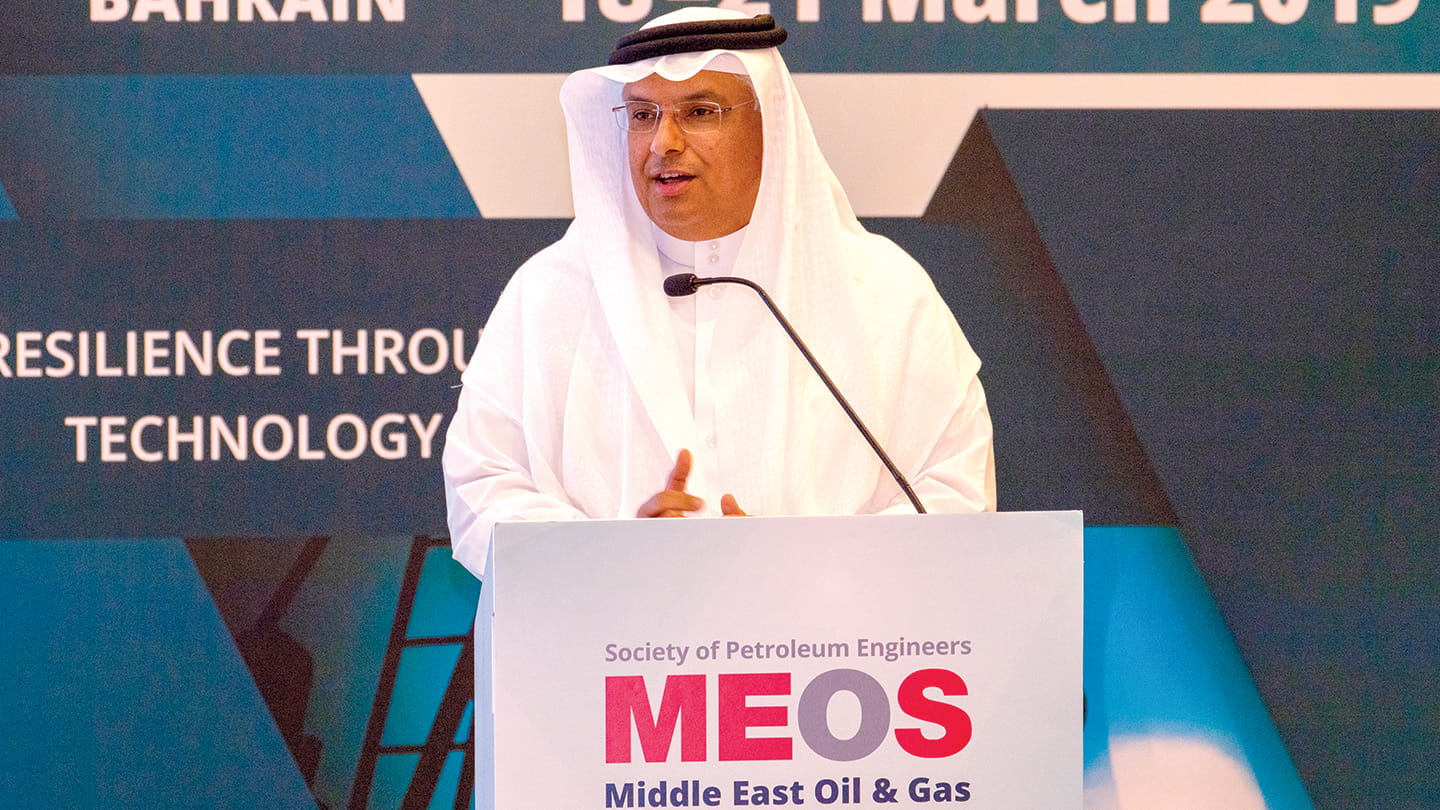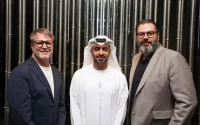MEOS 2019: Redefining resilience

Saudi Aramco’s senior vice president of Upstream told attendees of the 21st Middle East Oil & Gas Show and Conference (MEOS 2019) that taking into account “the evolving nature of what resilience means to our industry” is important to redefining the future.
Delivering a keynote address at the conference, Mohammed Y. Al Qahtani said the industry must respond to the fact that “the enablers of resilience — profitability, adaptability, and sustainability” — are being redefined, much like the energy landscape itself.
Al Qahtani called for the industry to be “smarter” and outlined three measures to be considered toward that end — and not necessarily limited to just technology. “Engineering, earth sciences, managing mega-projects — this is in our wheelhouse, our I.Q. if you will,” said Al Qahtani. But he suggested that other factors ought to be considered — E.Q., which takes into account developing stronger emotional intelligence to better understand and meet society’s expectations, and C.Q., which would see a renewed focus on cost and competitive advantage.
‘Unique and historic opportunity’
With regard to I.Q., Al Qahtani said the oil and gas industry has “a unique and historic opportunity” to be at the epicenter of the Fourth Industrial Revolution.
“As an industry, we have massive amounts of data from seismic, production, mechanical, and electrical functions. A single drilling rig or gas plant can generate terabytes of data every day,” said Al Qahtani. “But we can tap into only a small fraction of it. By applying new technologies to data, we are already gathering, we can change the game.”
As an example, he cited that in exploration, machine learning and artificial intelligence can sift through vast amounts of 3-D and 4-D seismic data to extract features invisible to the human eye. In drilling, said Al Qahtani, the industry should settle for nothing less than fully automated drilling rigs to enhance performance, safety, and efficiency. “As an industry, we must reclaim our passion for innovation, because there are technologies within our reach that are turning science fiction into science fact.”. Market turbulence, he said, has had a lasting impact on investment, adding, “We must reverse this trend, because I believe lagging investment is the greatest single threat to our future success.”. He also suggested that “collaboration, not isolation” is key to making innovation work on a grand scale.
“Whether it’s a full-scale test deployment with a leading robotics company, or a simple collaboration with a university on a difficult algorithm, we must transform our industry by working together,” he said.
Contributing to human advancement
Turning to emotional intelligence, Al Qahtani said successful energy companies of the future must be seen as contributing to human advancement — whether that be consumers and employees, supplies, governments, regulators, or communities.
Paying attention to climate change and delivering technologies that reduce the greenhouse gas footprint of hydrocarbons, is a must said Al Qahtani, and the industry should better communicate the actions it is taking and the progress that is being made.
“We need to help our stakeholders realize that we are part of the solution,” he said.
Focus on cost and value
With regard to C.Q., Al Qahtani said a renewed focus on cost and value would help to build and exploit a clear competitive advantage. Maximizing areas of competitive advantage and differentiation, he said, “is critical to increasing the value proposition of both our goods and services.”
In what promises to be a more competitive future, Al Qahtani said, only the very best will thrive.
“Redefining resilience will redefine our future. For me, that means working as smartly on our E.Q. and C.Q. as have always done with our I.Q.,” he said. “If we do, I am confident that this great industry will continue to grow, continue to be profitable, and continue to be at the heart of human progress for generations to come.”






 Email: info@cyber-gear.com
Email: info@cyber-gear.com